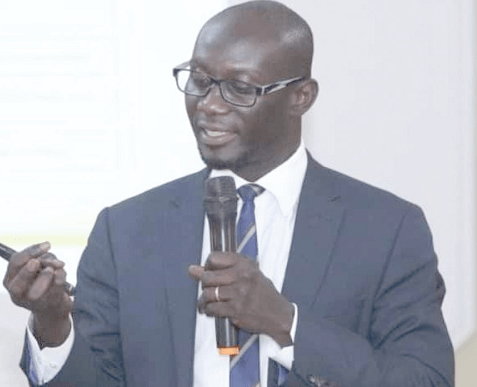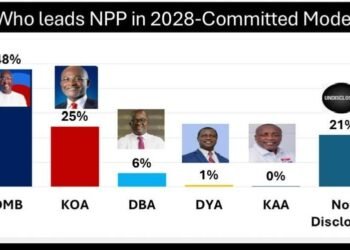The Ashanti Regional Director of Health Services, Dr. Fred Adomako-Boateng, has called for public awareness of cerebrospinal meningitis (CSM) in Ghana.
He began by recounting an earlier media engagement on February 4, 2025 which he highlighted the Ashanti region’s efforts in surveillance, public awareness, and case management. He clarified;
“Currently, Ashanti Region, as we speak, has not recorded any case of meningitis. And then we don’t really have any deaths. But I think when we engage the public, we gave the statistics for the past three years. In 2022, the cases that we recorded were 20, with no deaths. In 2023, we recorded 18 cases with one death. And then, in 2024, we recorded 42 cases with one death, and then the case fatality was 2.3%.”
Dr. Fred Adomako-Boateng Ashanti Regional Director of Health Services
The increase from 18 cases in 2023 to 42 cases in 2024 represents a significant rise, which has raised concerns among health authorities. Albeit, Dr. Adomako-Boateng took his time and explained the various causes of meningitis. He said;
“Most of the time, we lump meningitis together for want of a better word. There are different germs that cause it. Cerebrospinal meningitis (CSM), as we commonly know it, is caused by three different major bacteria which are the offending agents. Notwithstanding, it’s really difficult to determine the specific bacteria just by looking at the symptoms.”
Dr. Fred Adomako-Boateng Ashanti Regional Director of Health Services
He emphasized that these bacteria include Streptococcus pneumoniae, Haemophilus influenzae type B, and Neisseria meningitidis, which can all cause meningitis. However, not all of them spread rapidly or lead to outbreaks. Dr. Adomako-Boateng stated;
“We have weekly surveillance that we conduct, and the idea is to pick cases and determine which specific bacteria is responsible. Especially when we are in the season, because a lot of risk factors come into play to cause this problem.”
Dr. Fred Adomako-Boateng Ashanti Regional Director of Health Services
He further explained that the health sector uses two key measures to classify meningitis outbreaks namely; The Alert threshold where cases are increasing but do not yet meet epidemic status and the Epidemic threshold where cases surpass a certain level in proportion to the population, signaling a full outbreak. When asked about the significant increase in meningitis cases in 2024 compared to previous years, Dr. Adomako-Boateng explained;
“Basically, the increase in cases is still linked to climatic conditions. You know, a lot depends on the type of germ which is causing the meningitis. Some bacteria have a higher potential to spread widely, leading to an outbreak.”
Dr. Fred Adomako-Boateng Ashanti Regional Director of Health Services
He elaborated that in some parts of the country, meningitis bacteria are endemic, meaning some individuals carry the bacteria without showing symptoms. However, when environmental conditions change, such as during the dry season with increased dust and low humidity, it can lead to an outbreak.
Importance of Early Detection and Case Management

While the increase in cases is concerning, Dr. Adomako-Boateng stressed;
“If you ask me as a public health consultant, I will tell you I am not afraid if we pick up cases. What matters is our ability to manage them. If we detect cases early, even if they are many, we can reduce morbidity and mortality.”
Dr. Fred Adomako-Boateng Ashanti Regional Director of Health Services
He further emphasized the importance of having the right medications and vaccines to control the spread. He said;
“If we can identify the specific bacteria responsible for an outbreak, we have vaccines to fight it. Surveillance is very important to ensure the right response is put in place.”
“The most important thing now is creating awareness about the signs and symptoms so that cases can be identified early. Depending on the type of bacteria causing the infection, the response and mortality rate can be different.”
Dr. Fred Adomako-Boateng Ashanti Regional Director of Health Services
He advised that individuals should seek medical attention immediately if they experience symptoms such as Severe headache, Stiff neck, Fever and Sensitivity to light. He revealed;
“Clinicians are very aware of the situation, and awareness has been heightened among them. Every Monday, we monitor the number of meningitis cases in different districts to ensure timely intervention.”
Dr. Fred Adomako-Boateng Ashanti Regional Director of Health Services
The Ashanti Region has not recorded any meningitis cases in 2025, but health authorities remain on high alert given the recent increase in cases between 2022 and 2024.
Public awareness and vigilance remain key in ensuring that any potential cases are identified and treated promptly, reducing the risk of an outbreak in the region.























